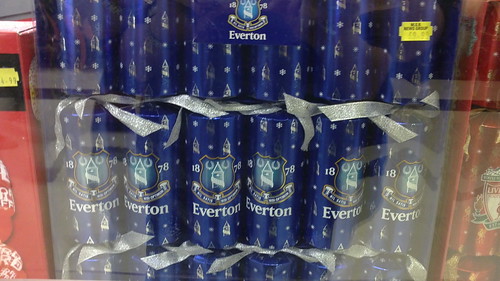Everton pay price of leadership’s manic spending and blind eye to warnings
Everton #Everton

The severity of Everton’s punishment is up for debate but the club breaking their permitted financial fair play spend is not. For that there is plenty of blame to go round at Goodison Park after years of dysfunctional thinking has left the club in a perilous position.
Some would argue that £19.5m is not much in the modern game, it barely buys a competent full-back these days, but Everton had received plenty of warnings about where they were heading. The Premier League’s independent commission was clear in its report: “The position that Everton finds itself in is of its own making.”
Everton argue a disagreement over accountancy treatments surrounding their spend on the new stadium is the reason they surpassed their FFP limit, but flawed business in the transfer market is at the heart of the matter.
Since Farhad Moshiri first invested in Everton in 2016, the direction of the club has swayed in the wind. Their managerial appointments have had little in common and Sean Dyche is their eighth permanent incumbent of the Moshiri era, which is set to end soon with 777 Partners waiting to complete their takeover with a backdrop of a 10-point deduction and a heightened threat of relegation.
Moshiri joined the club’s board in June, more than seven years after his original investment. Key decisions were made without the man whose money was keeping the wheels turning. Bill Kenwright, whose stake dropped to 1.3%, maintained the moniker Mr Chairman and a hold over the club despite selling the majority of his shares.
Kenwright was involved in player exits and in the commission’s report on its decision to punish Everton discussed the case of Player Y, whose proposed sale in the summer of 2020 was being handled by Kenwright rather than collectively by stakeholders on the board, a strategy that seems outdated.
While styles jumped from Ronald Koeman to Sam Allardyce to Frank Lampard, recruitment had to adapt to each manager’s needs, players came and went, although many stayed on the books because their high wages and lengthy contracts meant suitors were hard to find.
Everton spent £50m on Theo Walcott and Cenk Tosun during the 2018 January transfer window. Photograph: Ed Sykes/Action Images/Reuters
Allardyce spent just over six months in charge but still oversaw a January transfer window when almost £50m was spent to acquire Cenk Tosun and Theo Walcott. The Turkey striker signed a four-and-a-half year contract worth £120,000 per week, a deal he managed to see out, via two loan spells and 50 league appearances for Everton, before leaving on a free transfer to Besiktas.
In Moshiri’s first year, the club finished seventh and eighth in the two seasons that followed – this brought belief they were on the right track. In 2019 then director of football Marcel Brands created the Sustainable Business Plan that based its theory on Everton regularly finishing in the top eight.
It was suggested by advisors that accepting an average of 13th would make for a more sustainable concept but optimism defeated realism and the club ploughed on. Money was spent to achieve this ambition but since the plan was authored, Everton have failed to finish in the top eight, coming 16th and 17th in the past two seasons.
skip past newsletter promotion
Sign up to Football Daily
Kick off your evenings with the Guardian’s take on the world of football
Privacy Notice: Newsletters may contain info about charities, online ads, and content funded by outside parties. For more information see our Privacy Policy. We use Google reCaptcha to protect our website and the Google Privacy Policy and Terms of Service apply.
after newsletter promotion
The club still had assets to sell to potentially avoid this punishment. Their most valuable player in recent times was Richarlison, who the club thought could attract bids in the region of £80m but they sold him to Spurs for £60m in 2022. They had previously received a higher bid from Barcelona for the forward but the deal’s structure was a problem for Everton who tried to hold their nerve to get cash in immediately but it was a gamble that did not pay off. Risks were taken but few garnered reward.
As the financial stress grew and the club looked set to struggle to comply with profit and sustainability rules, Everton were forced into an informal agreement that required every signing to be agreed with the Premier League, effectively imposing a salary cap on the club. In the independent commission’s report it stated: “The Premier League asserts that for Everton to have persisted in player purchases in the face of such plain warnings was recklessness that constitutes an aggravating factor.”
It is a reminder that clubs require competent leadership who can direct a company for more than a season at a time. When clubs focus on the immediate future, it can create problems in the longer term and Everton have found this to their cost by throwing good money after bad. Others should see it as a caution that muddled planning cannot create a successful club in the Premier League.
The 10-point deduction is unprecedented and, potentially disproportionate, for the breaches Everton have committed, but they can not claim they were not warned.